11 Sep 2024
Updated on January 30th, 2025
Quantum App Development: A New Frontier in Software Engineering
Matthew Connor

Quantum computing is an entirely new paradigm in computing and one that is going to change the face of technology. While classical computers operate on bits, which are 0 or 1, quantum computers do their computing by implementing qubits, exploiting the very fundamental nature of quantum mechanics to execute information. Qubits can simultaneously exist in all their states in what is called a superposition and can also become entangled, creating correlations that surpass those in any classical system.
Quantum application development leverages the unique powers of quantum computers to enable applications to solve complex problems more squarely than their classical brethren. By leveraging superposition and entanglement, quantum algorithms can explore numerous possibilities all at once, which enables extraordinary speedup in certain computational tasks. For instance, quantum computers can factor large numbers exponentially faster compared with today’s computers-a task on which modern encryption algorithms are based.
As quantum computing technology continues to improve, we will further be in a position to lay eyes on an unprecedented amount of new quantum applications coming into view in different fields. In this blog, we are going to understand the intricate details of quantum app development solutions with a mobile app development company in Canada. Let’s get in!
Why Quantum App Development?
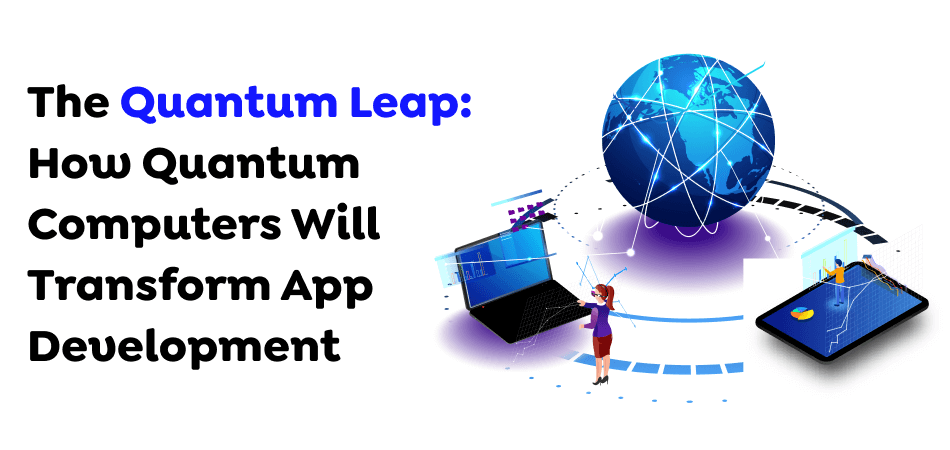
The benefits of quantum computing in developing apps are immense. Quantum computers can give significant speedup for certain types of problems, which include:
Optimization Problems
One of the most famous applications of quantum algorithms is to solve optimization problems. Many specific problems in logistics, finance, and material science involve seeking an optimal solution from an astronomical number of possibilities.
Machine Learning
Quantum computers can simulate complex quantum systems, something indispensable in gaining insight into and controlling quantum phenomena. Applications can be found in such fields as material science, chemistry, and quantum physics.
Simulation
Quantum computers can feasibly simulate complex quantum systems, which is very important to understand and control quantum phenomena. Applications will pertain to material science, chemistry, and quantum physics.
Also Read : How to Create Medical Billing Software: A Step-by-Step Guide
Understanding the Mysteries Quantum Computing Basics
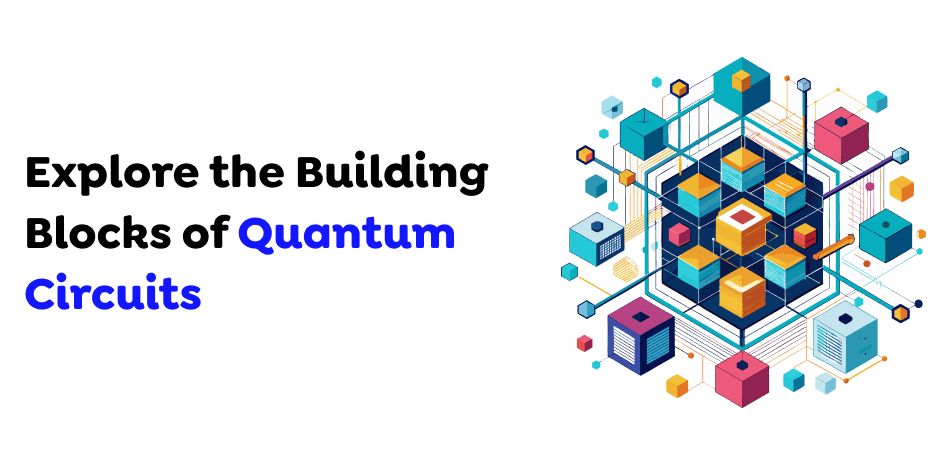
Qubits vs. Bits
While in classical computers, bits, which may only be in states 0 or 1, are the basis; qubits are used in quantum computers. Qubits stand for quantum bits, which can become a superposition of states in other words. More precisely, a qubit can both be 0 and 1 at the same time, fundamentally different from classic computing. This superposition can let quantum computers try many possibilities all at once, which may potentially speed up some kinds of computation.
Superposition and Entanglement
- Superposition: It means that qubits can simultaneously exist in states 0 and 1. Due to this property, quantum computers are capable of examining a large number of possibilities at the same time. This could, in principle, make some algorithms much faster than classical computers. For instance, given a database of N items on a classical computer, one would have to examine each item individually. However, by using Grover’s algorithm, a quantum computer can search in √N steps, with therefore a quadratic speedup.
- Entanglement: When several qubits become entangled, their states interrelate in such a way that cannot be described within classical notions. The immediate measurement of one qubit’s state automatically influences others, independent of the real distance between them. This is a basic feature of quantum mechanics and an important element in many quantum algorithms. An example is quantum teleportation, wherein entanglement is used to transfer information from one location to another without the need to physically move the particles.
Quantum Gates and Circuits
Just as classical computers employ logic gates to carry out computations, quantum computers use quantum gates to manipulate qubits. Quantum gates form the unitary operations that act to transform the states of the qubits. Standard quantum gates include the following:
- Hadamard gate: Puts a qubit into a superposition of 0 and 1
- CNOT gate: performs a controlled-NOT operation on two qubits
- Phase gate: Applies a phase shift to the qubit.
- Measurement gate: This measures the state of the qubit so that it collapses to either 0 or 1.
Quantum algorithms are built thereafter by quantum gates into quantum circuits. Quantum circuits define what sequence of operations shall be performed on qubits to achieve a wanted computational result. Researchers can, through their thorough design, develop quantum circuits in a way to uses the powers of superposition and entanglement to tackle various complicated problems more effectively than a classical computer can.
For example, Shor’s algorithm is a quantum algorithm for factoring large numbers, using quantum gates to perform a Fourier transform mathematical operation rather pricey on classical computers. Inefficiently performing the Fourier transform, Shor’s algorithm factors large numbers exponentially faster than any classical algorithm, which threatens to break much of modern encryption.
Also Read : The Ultimate Guide to Healthcare CRM Software Development: Enhance Patient Care
Programming for the Quantum World
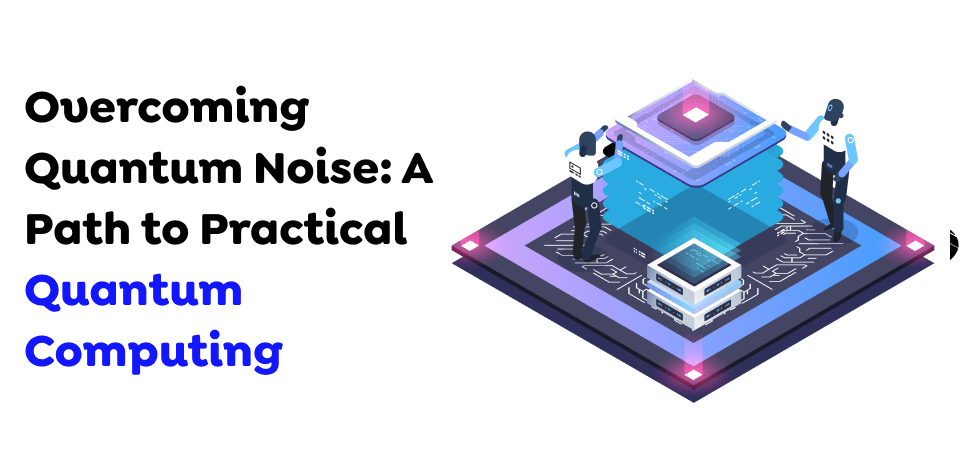
Noise and Error Correction
One of the great challenges in quantum computing is noise. Noise refers to, in general, those factors from the outside that could perturb the fragile states a qubit assumes and therefore give computational errors. These may include:
- Thermal noise: Qubits can decohere at the expense of the random motion of constituent atoms and molecules of an environment.
- Measurement errors: The measurement of a qubit necessarily disturbs the qubit’s quantum state and hence causes errors.
- Gate errors: Imperfections in quantum gates can introduce errors during computations.
To mitigate the effects of noise, researchers are developing error correction techniques. These techniques involve redundantly encoding quantum information, allowing errors to be detected and corrected. Some common error correction techniques include:
- Quantum error-correcting codes: They encode a single qubit into several qubits in such a way that the encoded information will be less susceptible to errors.
- Topological quantum computing: Topological properties of quantum systems are employed to realize qubits that have inherent noise robustness.
Programming and Development Tools
Quantum app development requires specialized programming languages and frameworks. These tools provide a way for developers to create quantum algorithms and circuits. Some popular quantum programming languages and frameworks include:
- Qiskit: A Python-based open-source quantum computing framework developed by IBM.
- Cirq: A Python-based quantum computing framework developed by Google.
- Forest: A quantum computing platform developed by Rigetti Computing.
Development in quantum software is, however, a challenging job even considering these tools. First, it requires basic understanding and reasoning capability over quantum mechanics, quantum algorithms, and quantum circuits by the developers. Second, current quantum hardware restricts the possible complexity of quantum algorithms that can be executed.
Scalability and Cost
Current quantum computers are small and extremely limited in their computing power. Quantum computers will be scaled to where they can solve practical problems, and it remains one of the important challenges. Limitations to scalability will arise due to:
- Qubit coherence: As the number of qubits increases, coherence has to be maintained, which is getting exponentially harder.
- Error rates: quantum computers scale up and the number of errors grows. This only complicates the integrity of computations.
- Manufacturing issues: Quantum computers of large-scale need complex manufacturing processes with sophisticated materials.
Besides the issue of scalability, a major consideration is the cost. Building and maintaining quantum computers involves a big expense because they consist of very specialized hardware and require special cooling. Reducing the cost of quantum computing will facilitate access for many more users and applications.
Also Read : How to Build Effective Childcare Management Software: A Step-by-Step Guide
Putting Quantum App Development in Action
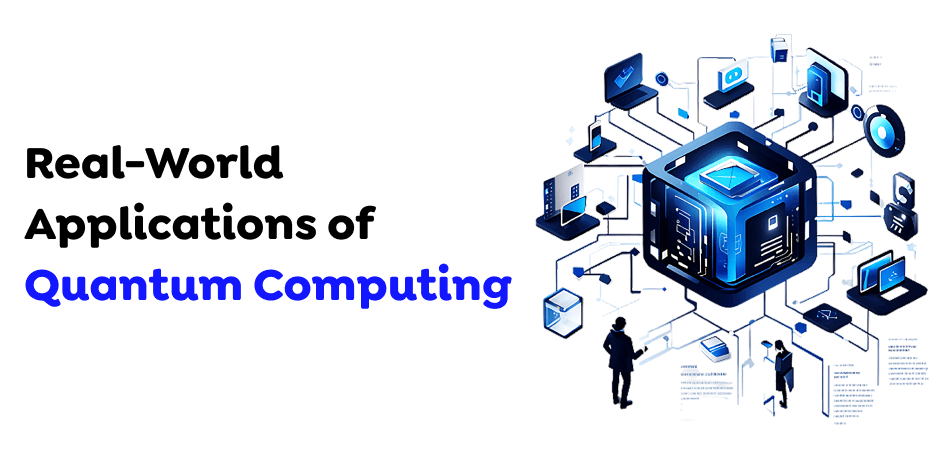
Case Studies
Currently, development with quantum applications is considered to be in its early days, but there are some promising case studies on the feasibility of this already.
- Drug Discovery: IBM scientists have used quantum computing to simulate interactions at the molecular level, hence most likely accelerating the process of finding new drugs. Quantum-level modeling of molecule behavior permits scientists to identify possible active candidates much more effectively.
- Financial Modeling: JPMorgan Chase started exploring the application of quantum computing for risk analysis and optimization of portfolios. It consequently follows that such complex financial data can be analyzed by a quantum algorithm nearly impossible by classical systems today, hence allowing informed decision-making.
- Materials Science: The scientific researchers working on quantum computing at Google have simulated the properties of materials, including high-temperature superconductors. Once you know how materials behave at the quantum level, you can design new materials with specific properties.
These case studies highlight the potential benefits of quantum app development, including:
- Improved computational power: For certain calculations, quantum computers are envisioned to be significantly more efficient than their classical counterparts, which rely on a distinct paradigm.
- Higher precision: Some quantum algorithms can perform tasks, such as identifying new pharmaceuticals or financial modeling, far more accurately.
- Quantum computing: It can give insights into complex systems that are hard to study by its usage.
However, these projects also highlight the challenges faced in quantum app development. These challenges include:
- Limited qubits: Currently, quantum computers have fewer qubits, meaning the level of problem complexity solved is not that high.
- Noise and error correction: Quantum computations are easily clouded by noise and errors.
- Programming challenges: Quantum programming requires special skills and tools, and these are hard to master by developers.
Industry-Specific Applications

Due to the field of quantum development, in the future, many industries will be reshaped. A few possible applications may look like:
-
Pharmaceutical Industry:
Quantum computers can simulate the interaction of molecules and predict the properties of new molecules, accelerating the drug discovery process.
-
Quantum Machine Learning:
It can also enable newer and more intelligent development in the field of artificial intelligence.
-
Cryptography:
These quantum computers can break down present encryption algorithms, and for that, new quantum-resistant cryptographic methods need to be developed.
-
Finance:
Quantum algorithms for portfolio optimization, risk analysis, and fraud detection.
-
Healthcare:
Quantum computing holds immense promise to reduce drug discovery, simulation of folding of proteins, and medical image analysis by several orders of magnitudes.
-
Logistics:
Quantum algorithms can be used to apply optimizations in transportation routes, supply chains, and resource optimization.
-
Artificial Intelligence:
Quantum machine learning could unleash highly powerful and, at the same time, efficient AI systems.
-
Gaming:
Quantum computing can enhance the outlook for gaming by providing more realistic simulations, faster rendering, and better AI.
-
AR/VR:
Quantum computing can make AR/VR more real and interactive by simulating complicated environments and interactions.
-
Climate Modeling:
Quantum computers can simulate complex climate models, thereby enhancing our understanding and predictive abilities regarding climate change.
Also Read : How to Develop Construction Management Software: A Complete Guide
Quantum App Development for Enterprises is a Strategic Approach
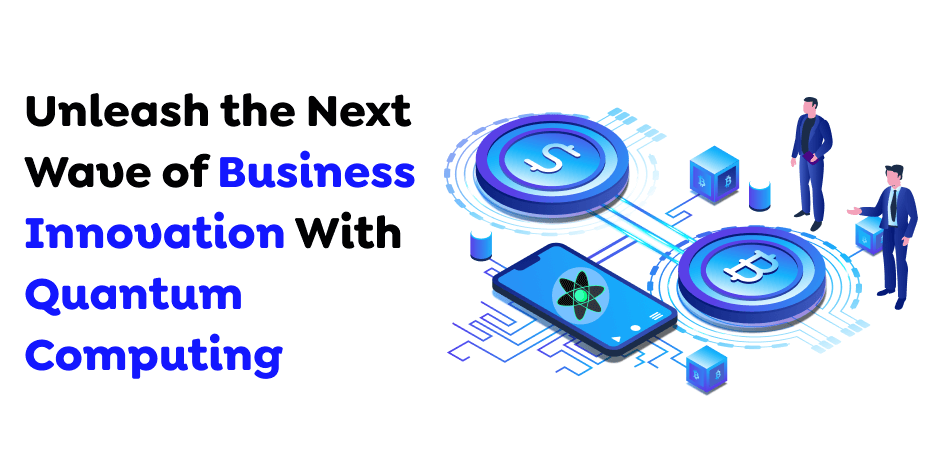
Harnessing the power of quantum algorithms, businesses can:
-
Solve complex problems more efficiently:
Quantum computers can solve problems much faster or even provide more accurate solutions, such as optimization problems or machine learning tasks.
-
Develop new products and services:
Quantum technologies allow us to create new, unique innovations that were not possible or practical before. Such examples include quantum computing’s ability to speed up drug discovery, supply chain optimization, and improvements in financial modeling.
-
Improve decision-making:
Quantum-powered analytics could unlock deeper insights that drive more informed decisions. Enterprises can uncover trends, patterns, and opportunities by analyzing large volumes of data with increased efficiency.
-
Enhance security:
Quantum cryptography may give a hefty boost to communication security and data protection. Quantum-resistant cryptography can protect sensitive information once quantum starts attacking classical encryption algorithms.
-
Invest in research and development:
The enterprise can invest in research and development projects to explore potential use cases of quantum computing in their industries. This includes collaboration with universities, research labs, or quantum technology startups.
-
Partner with quantum technology providers:
Through collaboration, enterprises access expertise and hardware that would otherwise be out of bounds. This is especially true in instances where the companies themselves do not have the competencies or means to build quantum applications.
-
Develop quantum skills within the organization:
Concepts and training in the usage of quantum-related skills and tools would help in-house enterprise capability building. This could include in-house training, sending employees for courses externally, or even collaborating with academic institutions for this purpose.
-
Identify suitable use cases:
Companies should look at their respective business processes and identify those places where quantum computing will make a big difference. In addition, deep knowledge is required regarding the capabilities and limitations of quantum technology and how it can be applied to certain kinds of business problems.
-
Pilot projects:
After identifying the right use cases, an enterprise can begin to execute pilot projects to test the viability and advantages of building quantum applications. It could also bring forth a certain understanding of the technical challenges, costs, and returns of quantum technology.
-
Scale up and integrate:
Successful pilots may be scaled and integrated with the enterprise’s current systems and processes. This is a painfully cumbersome job, needing lots of planning and coordination for a smooth transition to take effect.
Bringing Quantum Power to Your Pocket Via Mobile Apps
Quantum computing merged with mobile technology will be the game-changer in how we connect our devices. Quantum app development for mobile apps presents an exciting mix of challenges and opportunities.

Challenges
- Hardware Limitations: The hardware for quantum computing is still in its infancy and tends to be bulky and power-consuming. The inclusion of quantum computing on mobile devices is a severe problem for hardware technology.
- Software Complexity: Writing quantum algorithms and developing mobile framework integration requires highly specialized skills and experiences. The complexity of quantum computing itself makes it difficult to construct user-friendly and efficient mobile apps.
- Power Consumption: Quantum computing can be power-consuming and thus may drain the batteries of mobile devices very fast. It is therefore important that quantum algorithms be optimized for low-power mobile devices.
- Connectivity: Quantum computing in most cases involves high-speed access to tap into the quantum resources available in the cloud. This presents several challenges to users who find themselves on the move and have limited connectivity.
Opportunities
Despite these challenges, the potential benefits of quantum app development for mobile applications are enormous.
- Enhanced Performance: It is possible that with quantum computing, some types of computations will go faster, meaning that mobile apps will also be more responsive. This could be very useful in such tasks as image processing, machine learning, and data analysis.
- More Security: Quantum cryptography can better secure the communication of mobile apps and the protection of users and sensitive information against cyber-attacks.
- New Capabilities:
- Competitive Advantage: The ability to develop quantum-powered mobile applications can give an enterprise a competitive advantage by offering unique and innovative features for their customers.
And as quantum computing technology continues to evolve, expect a drumbeat of innovative quantum-powered mobile apps. Describing how to overcome these obstacles may be overwhelming, but this area holds enormous potential, and quantum computing is set to transform the future of mobile application development.
Mapping the Emerging Trends and Technologies
The important thing to note in the domain of quantum computing is that it is an evolving field; new developments have been made at a constant rate. A few of the promising trends and technologies include:
- Topological quantum computing: In this approach, topological properties of quantum systems come in handy for designing qubits inherently more resistant to noise.
- Trapped ion quantum computers: In these systems, single ions are isolated in electromagnetic fields to perform quantum computations.
- Superconducting qubits: Qubits fabricated from superconducting material represent one of the most promising technologies for the building and construction of large-scale quantum computers.
- Quantum software development tools: Novel programming languages and frameworks are being developed to make quantum app development more accessible and more efficient.
- Hybrid quantum-classical computing: The power of a quantum computer is combined with the power of a classical computer in tackling complex problems much more efficiently.
Quantum Computing is All About Responsible Innovation
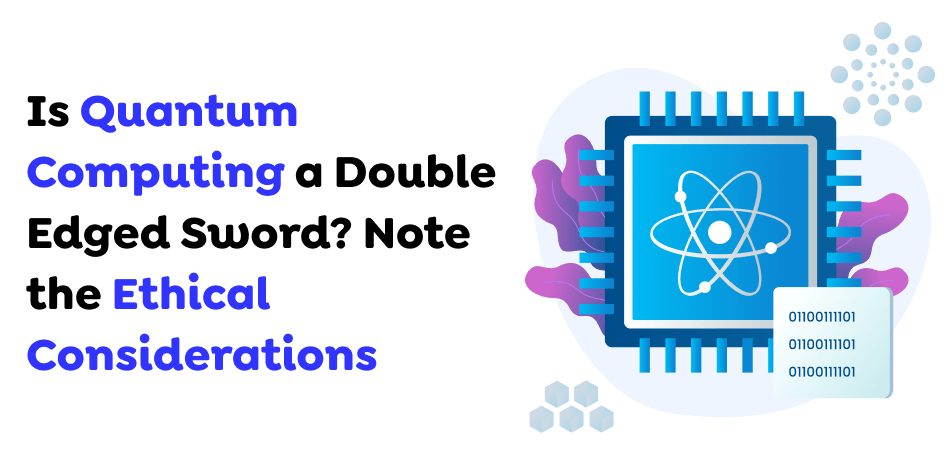
The development of quantum computing raises several ethical considerations. These include:
- Privacy and security: Quantum computers could potentially break existing encryption algorithms, posing a threat to privacy and security.
- Economic inequality: Access to quantum computing resources could be concentrated in the hands of a few powerful entities, leading to economic inequality.
- Environmental impact: Quantum computers can be energy-intensive, raising concerns about their environmental impact.
- Military applications: Quantum computing could be used to develop new weapons systems, raising ethical concerns about its potential for harm.
These are indeed ethical issues that will need painstaking deliberation and cooperation by governments, businesses, and researchers. In building ethical guidelines and regulations regarding quantum computing, would also ensure that the technology benefits society and does not have adverse ramifications. Ethical considerations become an essential part of the ongoing development of quantum apps. By being able to proactively address these issues, we will be able to protect the position of quantum computing used responsibly and for the good of humanity.
Looking Ahead

The future of quantum app development looks bright, with tremendous potential indeed. As quantum hardware and software continue to evolve, even more creative and powerful quantum applications will be developed. Techugo, a leading mobile app development company in Canada, combined with expertise in software development holds all the perfect cards for emerging as a leader in shaping the future of quantum app development. A mobile app development company in Canada can take the lead in carrying out research and development, collaborate with quantum technology providers, build relevant skills and expertise, and help unlock the complete potential of quantum computing to make the next generation of app innovation possible. Get in touch with Techugo today for cloud based quantum app development!
Get In touch
We are excited to here from you and let’s start something special Together. Call Us for any inquiry.
Write us
sales@techugo.caJust a call away
About you




